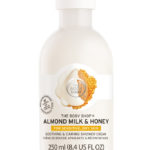Sensitive skin may pose something of a challenge for many women, but that doesn’t mean it shouldn’t be celebrated just as much as any other skin type.
The fact is, sensitive skin can still look and feel beautiful. Those who have a tendency towards it simply need to be able to identify the signs and symptoms, and treat them accordingly with specifically formulated sensitive skin products.
So, what are the signs of sensitive skin? We spoke to specialist dermatologist Dr Ritu Gupta of Platinum Dermatology to find out. But wait, there’s more: We also got her expert advice on the best sensitive skin treatment.
The verdict is in: Together, we need to stop fighting sensitive skin, and learn to love and protect it…
SENSITIVE SKIN SIGNS AND SYMPTOMS
According to Dr Gupta, those with a sensitive skin type are likely to experience one or more following symptoms on a regular basis:
- Redness
- Itchiness
- Burning sensation
- Dryness
- Peeling and flaking
SENSITIVE SKIN CAUSES
As Dr Gupta explains, sensitive skin is skin that has an “impaired barrier function”. This means that the seal around the skin cells found in the epidermis (top layer) has been damaged, rendering the skin “vulnerable to irritants and dryness, as vital moisture leaches out of it”.
So how does this skin barrier damage occur? Well, according to our expert, the following external factors can be to blame:
– Rough fabrics
– Chlorine
– Sand
– Sweat
– The cold and wind in the winter months
In addition to these environmental and lifestyle factors, Dr Gupta says the following skin care ingredients can also exacerbate sensitive skin symptoms:
– Soap
– Acids (glycolic, fruit, salicylic)
– Benzoyl peroxide or topical retinoids (vitamin A compounds)
IS SENSITIVE SKIN THE SAME AS DRY SKIN?
Not sure whether you have a dry or sensitive skin type? According to Dr Gupta, dry skin alone can often be caused by underactive sebaceous glands, while “sensitive skin is more prone to irritation and dryness”.
It’s also important to note that those with a “normal” skin type can still experience occasional skin sensitivity and irritation. As Dr Gupta explains, even if you usually have a good skin barrier function, factors such as “over-washing, soaps, very hot water and incorrect skin care products” can all trigger a sensitive skin reaction. However, a normal skin type will usually only become irritated if the aforementioned triggers are “repetitive or in high concentration,” says Dr Gupta.
HOW TO TREAT SENSITIVE SKIN
As Dr Gupta explains, the best sensitive skin treatment involves addressing a number of environmental or lifestyle factors, and using appropriately formulated sensitive skin products.
For many, “simple measures such as short, lukewarm showers, not over-washing, wearing loose, natural fibres and washing sweat and chlorine off the body [following exercise]” can help resolve the problem – but as the expert explains, it’s also important to avoid harsh skin care ingredients and known irritants. You should also moisturise your skin regularly, to aid the healing process.
For best results, the dermatologist recommends body care products that are “soap-free, pH balanced and hypoallergenic,” as they don’t impair the skin’s barrier function, and will therefore be less irritating to sensitive skin.
For those in need of sensitive skin products, The Body Shop’s new Almond Milk & Honey range is a great starting point. The dermatologically-tested formulas are colourant-free, and also feature a non-irritating, hypoallergenic fragrance. But that’s not all: The 100 per cent vegetarian range also contains nourishing ingredients such as Community Trade almond oil from the Alicante region of Spain, and Community Trade honey from the UNESCO Sheka rainforest in Ethiopia, to help comfort, protect and restore sensitive skin to its healthiest state.
For a sensitive-skin-friendly shower, bh recommends The Body Shop Almond Milk & Honey Soothing & Caring Shower Cream. The gentle formula is designed to respect the skin’s natural barrier. So you can lather up, knowing that you are nurturing (rather than hurting) your skin.
But a nourishing body cleansing product alone isn’t enough. As Dr Gupta explains, using a moisturiser that contains “rich emollients (moisturising ingredients)” is also key. bh recommends The Body Shop Almond Milk & Honey Soothing & Restoring Body Lotion, which has been formulated to protect against uncomfortable tight and itchy skin for up to 48 hours, and has a silky, soothing texture to boot!

Do you have any sensitive skin symptoms? Did you find this article helpful?






